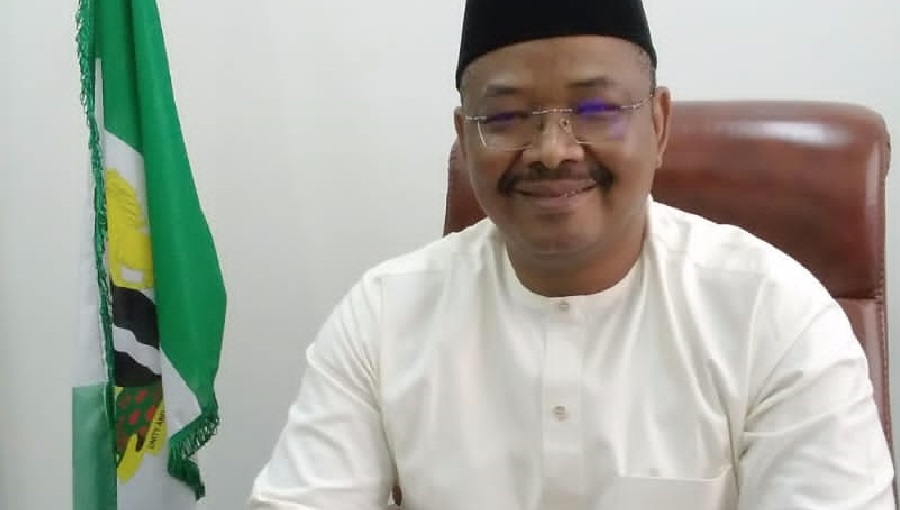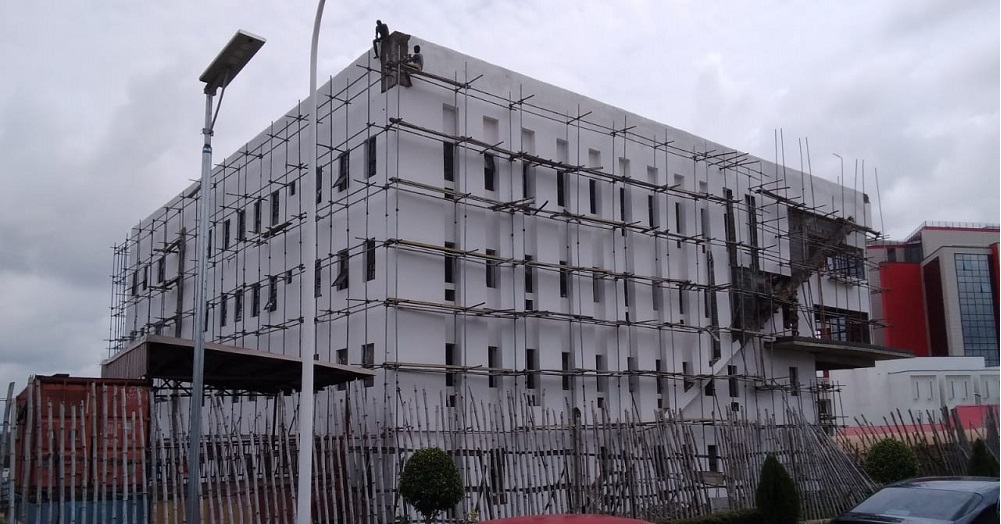Professor Sa’ad Ahmed, a consultant pathologist, is the Medical Director, Federal Medical Centre, Jabi.
The FMC has been converted into a tertiary hospital that engages in clinical services, manpower training and research.
Advertisement
The FMC Jabi Used To Be China-assisted. What Is The Situation Now?
Like you said, the hospital was built by the Chinese, equipped by the Chinese Government and also trained the staff who were on ground as at that time.
Some of them went to China for those training, came back and continued rendering services, but that was where it ended and subsequently the Nigerian government took over. I came in here in early 2020, February to be specific and took over.
You know what you met that time, patients being attended to with microphone, I’m sure what you met as at that time was actually a transition because when this hospital was built, it was built as a Federal staff hospital, because of the size the Federal Government decided that we have a big structure now why not convert it to Federal Medical Centre? The functions are completely different.
Advertisement
Now with that conversion, a lot of influx of patients started setting in and of course expansion of the hospital started right from that time.
Luckily for us now we have gotten some budgetary provisions and some other interventions for some structures and also equipment.
We were able to get some waiver to recruit manpower, even though some of them are leaving but we have quite a number of specialists now that are giving service.
Now the issue of brain-drain, maybe is something that we’ll discuss in the course of this, it’s not particularly clear, but I think the government is doing something about it through those committees that they have inaugurated.
They are currently receiving memoranda to see to that. By brain-drain, I mean our health professionals leaving for greener pastures outside the shores of this country. Yeah, daily you see them. Some are going to Saudi Arabia, UK, US, Australia, South Africa and all of that.
Advertisement
I’m quite hopeful that they may be able to come up with something that will be able to keep our health care professionals here to give their services to Nigerians.

Sir, Are You Saying You Don’t Support Our Health Care Professionals Going Abroad?
Yes, you see, if it reaches a certain percentage then it becomes alarming. Yeah, before now people have been going outside, so they’ll decide to go there, study, work and all of that.
Now, there’s equally what we call reverse brain-drain whereby they can come back and assist in one way or the other towards strengthening the system.
But what is going on now is that the majority of the people, the young graduates, are living in droves. The moment they leave the medical school, housemanship and NYSC, they start writing qualifying exams or certification exams for those countries and before you know it, they are gone. Sometimes you employ them but they know what they are doing, within a few months they’ll tell you that sorry, I’m resigning.
Advertisement
What Can Be Done To Remedy The Situation?
There may be many factors, but at least we can see two that are glaring. One is maybe the differential in terms of remuneration. So, if there can be a little bit of improvement, at least let the government sit down with stakeholders, some of those issues may be handled.
The other thing may be some of the other push factors that affect the country, especially the issue of insecurity.
But we are happy to hear that a lot is being done currently by the news that we hear and also at least we don’t get to hear some of the bad news coming in again within the last one week. We learn that the military are really doing their best and we hope that should be sustained in order to give stability to this country.
What Are Your Views About Professionalism Of Nigeria’s Medical Personnel?
I think Nigerian health professionals, let me put it that way, are quite well trained and they are also willing and committed to give their best.
We may have some challenges, maybe in terms of getting the necessary equipment to work with and maybe the remuneration I talked to you about. But these are constant engagements.
Those that are in their professional associations or unions are constantly engaging with the government to see how some of these things are improved upon.
But largely, I can say that Nigerian health professionals are well trained and when they leave this country they excel. So that’s to show you that at least we are the best of all the health professionals in this country. And we should be able to see how we can give some more support in training and retraining of these staff.
What Are Your Insfrastructural Plans For The Hospital?
My plans for this hospital is to be the best in Nigeria and the West African subregion. And we are relying on the deployment of technology to achieve some of our needs, because one of the few things we did when I came here was to computerise the whole hospital starting from the cash points to the records, the lab and even to clerking of patients by the doctors.
It’s a continuous thing and we are expanding on all of these and we want it 100%. That will ease off the problems the patients are having and to help us monitor what exactly is going on. Even at this moment on my phone, anywhere I am in this world I can always log in and monitor what is going on anywhere and I can ask questions.
The good thing with the software we are using is that it gives room to even interact with the staff.
So, if I have questions, I can just chat you up. Sometimes like 12midnight, 1am, you’ll see someone online doing his work and you just want to like show him that, OK you’re doing well, keep it up, so you chat him up. This motivates them to do more apart from the traditional way of doing things.
In terms of equipment, we equally brought in a lot of equipment ranging from x-ray fluoroscopy to endoscopy machines to OCT which is an ophthalmology equipment and some other related equipment in ophthalmology.
We have lots of equipment we brought into the theatre, we have laser surgery and I can tell you that this is the only public hospital in Nigeria that has that.
We have the heart lung machine which is used for open heart surgery. We also have EEG for people that have neurological problems that need to be investigated.

We equally try to see how we can reduce medical tourism, at least the money that will be spent elsewhere should be spent here and get your health back.
We are investing so much on both equipment, infrastructure, manpower and all of that and also to see if we can tie all the systems together to the satisfaction of the patients.
I told you about staffing, we are able to get more staff consultants in rare fields here. Neurosurgeons, we have up to 3 in number, 2 cardiothoracic surgeons that do open heart surgery, and we have other consultants on ground.
We have gotten residency training accredited in various departments and we are currently running those programmes for young doctors to become consultants.
So far so good, the pass rate in all the exams have been quite impressive. I think we are doing well and will continue to give support in all of those areas to see how we can improve upon what we are doing.
What Is The Staff Strenght Of The Hospital?
We have a staff strength of about 1500, for consultants we have about 50, we have resident doctors who are about 130. We have quite a number of nurses, almost 300 in number, lab scientists, I don’t have the specific figure, pharmacist, physiotherapist and all that.
In line with this also, there’s a programme of the Federal Government which they are about to roll out.
Currently, they are training as stakeholders for implementation of the National Emergency Service. FCT is one of the states where this is going to start from.
It’s an ambulance service so if anybody has any emergency, you call a certain number, a call centre will now dispatch an ambulance to pick the patient and bring to the hospital.
Because it’s an emergency, that NEMSAS, which is the name of the agency, is going to cover the cost of the treatment for two days (48hrs) for that patient. So that 48hrs is enough to stabilise the person.
You know when we say an emergency sometimes, it doesn’t really have to follow, you may have billions of naira but when it’s an emergency you may be unconscious and you may not have access to that money to even pay for anything. So, that scheme will pay for everything.
The NEMSAS is actually arising from the National Health Act of 2014 that was signed, but of course the implementation is coming late, but we say it’s better late than never.
We are quite hopeful this will also bring some relief to the members of the community towards accessing health care.



